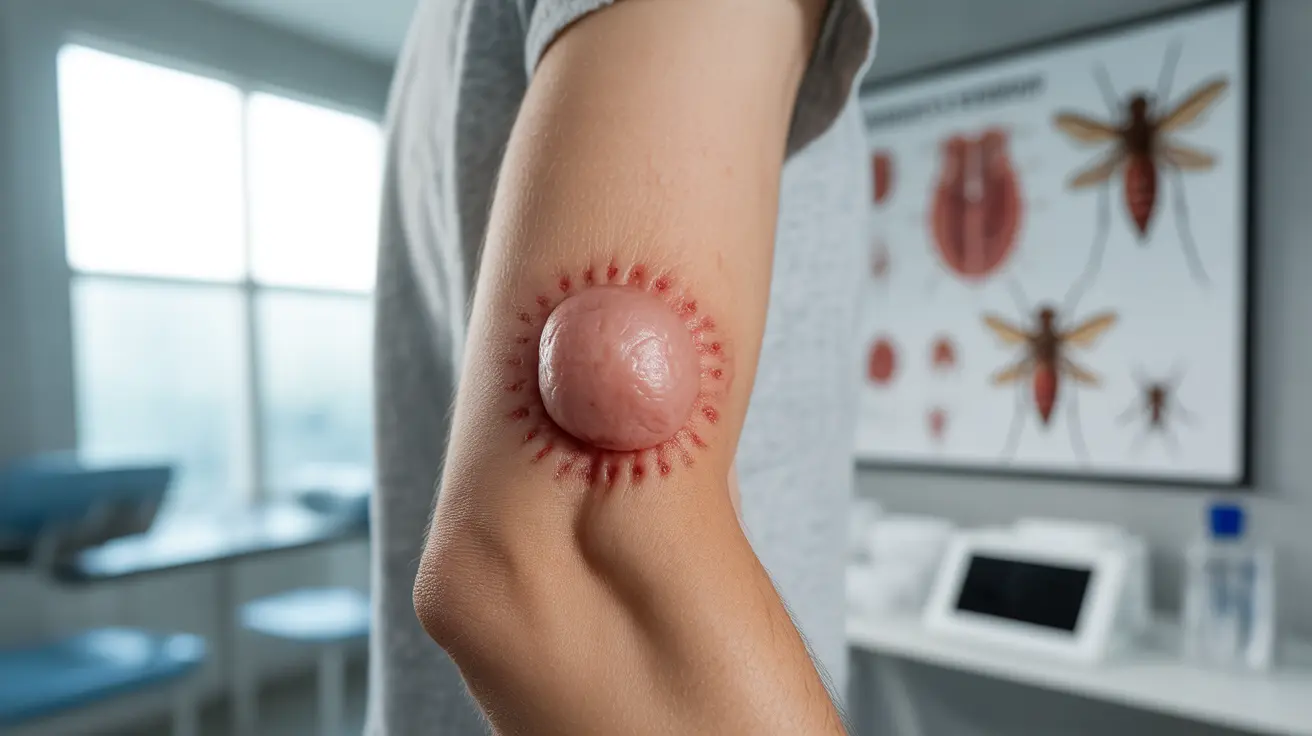For most people, mosquito bites are a minor nuisance that causes temporary itching and small bumps. However, some individuals experience a more severe allergic reaction known as skeeter syndrome. This condition can transform a simple mosquito bite into a significant medical concern requiring prompt attention and proper management.
Understanding skeeter syndrome is crucial for those affected, as its symptoms can be alarming and sometimes mistaken for other conditions. This comprehensive guide will explore the causes, symptoms, treatment options, and prevention strategies for this uncomfortable allergic reaction.
What Is Skeeter Syndrome?
Skeeter syndrome is a moderate to severe allergic reaction to mosquito saliva that causes significant swelling, redness, and discomfort around the bite area. Unlike typical mosquito bite reactions that resolve within a day or two, skeeter syndrome reactions can persist for several days and may require medical intervention.
Identifying Symptoms and Signs
The symptoms of skeeter syndrome typically appear more quickly and are more intense than regular mosquito bite reactions. Common signs include:
- Large areas of swelling, often exceeding 4 inches in diameter
- Significant redness and warmth around the bite site
- Intense itching and pain
- Fever in some cases
- Blistering or bruising
- Lymph node enlargement
Risk Factors and Causes
Several factors can increase your likelihood of developing skeeter syndrome:
- Young children and infants
- Individuals with compromised immune systems
- People with allergies or asthma
- Those with limited previous exposure to mosquito bites
- Individuals with a family history of severe allergic reactions
Treatment Approaches
Immediate Home Care
When symptoms first appear, several home remedies can help manage discomfort:
- Apply cold compresses to reduce swelling
- Elevate the affected area
- Use over-the-counter antihistamines
- Apply calamine lotion or hydrocortisone cream
- Take oral pain relievers if needed
Medical Treatment
Professional medical care may be necessary if symptoms are severe or worsening. Treatments might include:
- Prescription-strength antihistamines
- Oral or topical steroids
- Emergency treatment in cases of severe allergic reactions
- Antibiotics if secondary infection develops
Prevention Strategies
Preventing mosquito bites is the best way to avoid skeeter syndrome. Key prevention methods include:
- Using EPA-registered insect repellents
- Wearing long-sleeved shirts and long pants
- Treating clothing with permethrin
- Eliminating standing water around your home
- Installing or repairing screens on windows and doors
- Avoiding outdoor activities during peak mosquito hours
Frequently Asked Questions
What are the common symptoms that distinguish skeeter syndrome from a normal mosquito bite?
Skeeter syndrome causes significantly larger swelling (often over 4 inches), more intense redness, and symptoms that last longer than typical mosquito bites. The reaction may also include fever, blistering, and lymph node swelling.What causes skeeter syndrome and who is most at risk of developing it?
Skeeter syndrome is caused by an allergic reaction to proteins in mosquito saliva. Those most at risk include young children, people with immune system disorders, individuals with allergies or asthma, and those with limited previous exposure to mosquito bites.How can skeeter syndrome be treated at home and when should I see a doctor?
Home treatments include cold compresses, elevation, antihistamines, and anti-itch creams. Seek medical attention if you experience severe swelling, difficulty breathing, fever, or if symptoms worsen after 24-48 hours.What preventive measures can reduce the chances of getting skeeter syndrome from mosquito bites?
Use EPA-registered insect repellents, wear protective clothing, eliminate standing water, and avoid peak mosquito hours. Installing proper screens and using mosquito nets can also help prevent bites.How is skeeter syndrome diagnosed and how can it be differentiated from skin infections like cellulitis?
Diagnosis is typically based on symptoms and medical history. Unlike cellulitis, skeeter syndrome symptoms appear quickly after a bite and include itching. Cellulitis usually develops more gradually and may cause streaking redness and more systemic symptoms.




